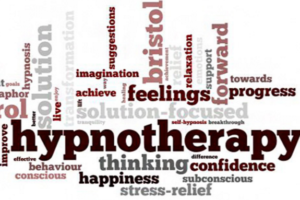
 Despite robust evidence for myriad ailments and sound mechanistic data, hypnosis is underused by internists. Using hypnosis fulfills our pledge to abide by evidence-based treatments that alleviate suffering with the least collateral harm, but there is a discrepancy between its benefits and physicians who offer the treatment.
Despite robust evidence for myriad ailments and sound mechanistic data, hypnosis is underused by internists. Using hypnosis fulfills our pledge to abide by evidence-based treatments that alleviate suffering with the least collateral harm, but there is a discrepancy between its benefits and physicians who offer the treatment.
Although hypnosis may appear in the medical curricula at academic powerhouses like Baylor, Harvard, Columbia, and Stanford, hypnosis training is rare even at these institutions. Here is why a modern resurrection of the oldest Western form of psychotherapy should inspire internists to get trained and offer medical hypnosis broadly.
Hypnosis, and its myths and misconceptions, have evolved since the 18th century when Franz Mesmer inadvertently led hypnosis into obscurity with his theory about manipulating a force called “animal magnetism.” These claims were dispelled by the French Royal Academy of Sciences, and it took nearly 100 years for Scottish physician James Braid to first describe a mental and suggestive theory of hypnosis as a waking physiologic state.
The 2014 definition from the American Psychological Association’s Division 30 describes hypnosis as “a state of consciousness involving focused attention and reduced peripheral awareness characterized by an enhanced capacity for response to suggestion.”
Long-standing empirical evidence demonstrates that hypnosis impacts perception, symptoms, and habits, which have recently been explained by advanced diagnostic modalities like functional magnetic resonance imaging (fMRI). Changes during hypnosis include reduced activity in the dorsal portion of the anterior cingulate cortex (a key component of the salience network) and connectivity between the prefrontal cortex and the insula (a pathway for mind-body control).
Augmented by data on neurotransmitter metabolism and genetics, the neurophysiologic basis of hypnosis is no longer mysterious. Though our understanding of the mechanism of action of hypnosis is more robust than that of even acetaminophen, this has not sufficed to enhance its use.
Skeptics describe hypnosis in 1 of 3 ways: dangerous mind control, an ineffective farce, or placebo. It is often viewed as a loss of control and, therefore, dangerous, when in fact it is a powerful means of teaching patients how to control mind and body. The ability to enter into hypnosis, termed hypnotizability, is a stable trait possessed by most people, which can be entered into or terminated by the patient.
is a powerful means of teaching patients how to control mind and body. The ability to enter into hypnosis, termed hypnotizability, is a stable trait possessed by most people, which can be entered into or terminated by the patient.
It is not effective in the presence of conditions such as stroke or schizophrenia or impaired focused attention or language processing. Hypnosis is more powerful than placebo (though patient expectancy is a moderating factor), and placebo effect is blocked by administration of naloxone, while the hypnotic analgesia is not.
Reviews on hypnosis for internal medicine topics are impressive, with demonstrated efficacy for migraine headache,4 irritable bowel syndrome,5 and anxiety.6 Hypnosis improves procedural pain and emotional distress and reduces medication consumption up to 40%7—in short, if hypnosis were a drug, it would be standard of care. Internists should prescribe hypnosis particularly when it outperforms the current standard of care by safety and efficacy, as in the case of opioids and sedatives.
Patients have a strong appetite for taking charge of their symptoms; online hypnosis videos for anxiety and insomnia boast 15-19 million views, and medical hypnosis is quite acceptable by patients.8 But patients cannot be expected to differentiate between legitimate and manipulative sources of hypnosis online any more than if they bought pills off the street. This treatment modality falls under the purview of medicine, and our duty is to provide safe access. To do this, we must improve the supply.
Formal training for medical providers is offered through national societies, such as the American Society of Clinical Hypnosis (ASCH) and Society for Clinical and Experimental Hypnosis (SCEH). Trainings span 4 days and include ethics and informed consent in addition to practical skills. Hospital credentialing for the privilege of hypnosis may be required: If none exists, designing one to include formal training and mentorship requirement is advised. For institutional trailblazers, individuals in the hypnosis societies can provide mentorship.
Hypnosis training includes tools for helping our patients to help themselves, which benefits all our patients even outside a formal session. Telling a patient: “Don’t think about purple elephants” will assure that they do. Through the lens of hypnosis, one appreciates that even the common phrase “How bad is your pain” is fraught with negative associations.
With all their capacity to trust their physician, patients internalize “You have bad pain.” Contrast this with the phrase, “How comfortable are you right now?” The patient scans their body for comfort rather than pain and, if discomfort is reported, can be followed up with the 0-10 scale. These subtle adjustments acknowledge comfort without the disservice of anticipatory suffering. This is the healing art of medicine.
 Additionally, the trained physician can practice self-hypnosis for stress management, insomnia, or performance anxiety, thereby avoiding medications that blunt their focus. Our patients, colleagues, trainees, and families stand to benefit.
Additionally, the trained physician can practice self-hypnosis for stress management, insomnia, or performance anxiety, thereby avoiding medications that blunt their focus. Our patients, colleagues, trainees, and families stand to benefit.
Hypnosis research is funded by the National Center for Complementary and Integrative Health (NCCIH), and researchers are making inroads into the genetic aspects of hypnotizability and response to treatment and studying hypnosis for pain management for cancer and surgery, smoking cessation, and stress management in health care.
The automation of hypnosis using recordings, web-based applications, and smart-speaker devices is being tested to expand access to hypnosis interventions. From basic science to clinical efficacy to medical education, hypnosis research of all kinds has relevance for internal medicine.
Internists are the ambassadors of evidence. Our broad training and scope maximizes our effectiveness as healers, but we mustn’t lose sight of that which experiences illness: the human mind. When the technique of hypnosis is properly illuminated, its role will be welcomed and respected by our patients.
They will benefit from less pain, anxiety, insomnia, habits such as smoking, and the side effects that accompany many pharmacological treatments. We will benefit from the satisfaction of reacting nimbly to the best evidence for safer treatments and, perhaps, also enjoy a better night’s sleep. This is a call to action for broader use of hypnosis with intrepid internists leading the charge.
by: Jessie Kittle, MD and David Spiegel, MD
Code of Ethics and Standards of Practice
National Guild of Hypnotists
Client Welfare: Members shall make the physical and mental well-being of each client a prime consideration.
Client Safety: Members shall not engage in verbal, physical or sexual abuse of any client.
Practice Limits: Members shall use hypnotism strictly within the limits of their training and competence and in conformity to the laws of their state.
Advertising: Members shall be truthful in their advertising.
Referred Practice: Members shall engage in hypnotic work with a client regarding a medical or mental disease only on written referral from an appropriately licensed medical or mental health professional, except when otherwise provided for by state law.
Reasonable Practice: Members shall withhold non-referred hypnotic services if a client’s behavior, appearance or statements would lead a reasonable person to believe that the client should be evaluated by a licensed health care professional. Members shall provide services to such clients only after evaluation and with the approval of the licensed health care professional.
Colleagues: Members shall treat hypnotist colleagues without public defamation.
Record Keeping: Members shall establish and maintain proper records necessary to a professional practice.
Scope of Practice: Members shall use hypnotism with clients to motivate them to eliminate negative or unwanted habits, facilitate the learning process, improve memory and concentration, develop self-confidence, eliminate stage fright, improve athletic abilities, and for other social, educational and cultural endeavors of a non-medical nature. Except where state law provides otherwise, members shall use hypnotism with clients regarding a medical or mental disease only on written referral from a licensed medical or mental health professional.
Titles of Practice: Members shall hold their hypnotism services out to the public using only those titles earned and approved by the National Guild of Hypnotists: Certified Hypnotist or Certified Hypnotherapist Certified Instructor, Board Certified Hypnotist or Board Certified Hypnotherapist, Fellow of the National Guild of Hypnotists, or Diplomate of the National Guild of Hypnotists, or titles protected by state law.
Disclosure: Members shall truthfully disclose in writing to each client, using a Client Bill of Rights or similar written document, the nature and venue of the member’s hypnotism training, the field of study of any higher degree used when holding services out to the public, the lawful limits of the member’s practice of hypnotism, the practitioner’s theoretical orientation or model, instructions for contacting the National Guild of Hypnotists should the client seek redress, and any business policies and practices maintained by the practitioner. Members holding advanced degrees from institutions that do not hold accreditation recognized by the United States Department of Education shall disclose to clients that the degree is alternative rather than academic. Members shall restrict the services described on this document to hypnotism.
Terminology: Unless qualified to do so by another credential, members shall avoid using the language of psychopathology or medicine when working with clients, except on referral from a licensed medical or mental health professional.
Public Hypnotism: Demonstrational hypnotism shall always be presented in a tasteful manner which is considerate of the individuals who have volunteered to participate in a public demonstration. Individuals participating in such demonstrations shall be treated with courtesy and respect.
Age-regression and Forensic Hypnotism: Age-regression and forensic hypnotism shall be used only by those who have had additional training in these specific fields of study.
Imagery: Frightening, shocking, obscene, inappropriately sexually suggestive, degrading or humiliating imagery shall never be used with a hypnotized client.
Claims: Members shall not disseminate false or exaggerated claims regarding hypnotism, but shall attempt whenever possible to inform and educate the public with a true perspective of hypnotism. Members shall make only those specific claims for the effectiveness of hypnotism as can be justified by outcomes data. Members shall publicly maintain a professional demeanor toward other professions expressing divergent views on hypnotism.
Advertising: All advertising shall be factually presented in a professional and ethical way consistent with accepted standards. Members shall advertise services and capabilities as hypnotists in conjunction with other specialties, occupations, vocations, arts or professions only if duly trained, properly qualified and professionally recognized in those fields.
Education: Schools of instruction now existing and those to be established in the future shall provide a full curriculum consisting of the theory, practice and applications of hypnotism, instruction and supervised practice in hypnotic methodology, the possibilities and limitations of hypnotism, with thorough instruction on the Ethics and Standards of our profession as set forth herein. All curricula used at schools recognized by the National Guild of Hypnotists shall be approved by the National Guild of Hypnotists. Instructors at such schools are expected to be approved and certified by the National Guild of Hypnotists or to hold credentials judged by the Guild as equivalent.
Good Standing: Members who maintain the required number of continuing-education hours, are of high moral character, conduct themselves and their practice of hypnotism in a professional and ethical manner and meet their financial dues obligation shall be considered as members in good standing of the National Guild of Hypnotists.
Recommendations: When a member recommends a client consult a colleague or health care professional, the member shall, whenever possible, provide the client with a list of more than one recommended

 This study checks out is effective and safe for people suffering from irritable bowel syndrome (IBS).
This study checks out is effective and safe for people suffering from irritable bowel syndrome (IBS).
A total of 464 patients received 7–12 hypnosis sessions over a 12 week period. At the end of therapy, hypnosis proved to be superior in producing adequate symptom relief.
This study demonstrated that hypnosis was safe and provided long-term adequate symptom relief in 54% of IBS patients compared to conventional therapy. [more]

 In an effort to evaluate the reduction of emotional and physical disturbances in patients scheduled for breast biopsy, this study compared audio-recorded hypnosis with background music vs. music without hypnosis. It also included a control group.
In an effort to evaluate the reduction of emotional and physical disturbances in patients scheduled for breast biopsy, this study compared audio-recorded hypnosis with background music vs. music without hypnosis. It also included a control group.
A total of 75 patients were randomly assigned to a group and evaluated before and after breast biopsy for levels of stress, pain, depression, anxiety, fatigue, optimism, and general well-being.
The results showed that, before breast biopsy, the music group presented only less stress and anxiety, whereas the hypnosis group presented reduced stress, anxiety, and depression and increased optimism and general well-being.
After the biopsy, the music group presented less anxiety and pain, whereas the hypnosis group showed less anxiety and increased optimism. [more]

 A meta-analysis examines treatments like meditation and cognitive behavioral therapy as alternatives for alleviating pain that is typically treated with opioids.
A meta-analysis examines treatments like meditation and cognitive behavioral therapy as alternatives for alleviating pain that is typically treated with opioids.
The more we learn about opioids, the clearer it becomes that there’s no simple solution to the opioid crisis and the cycle of dependency and misuse that has already impacted millions of Americans.
It’s especially difficult given how effective opioids are at pain management, particularly the kind of acute, short-term pain associated with cancer treatment or surgical or injury recovery.
Researchers are actively seeking alternatives to opioids when it comes to pain management—and a meta-study tracking the efficacy of mind-body therapies for treating pain that was previously managed with opioids indicates that some MBTs could act as effective pain management treatments, as well as tools for helping reduce opioid use and dependency.
The survey examined 60 studies looking at the effectiveness of “psychologically oriented MBTs,” including meditation, hypnosis, guided imagery, relaxation, cognitive behavioral therapy, and therapeutic suggestion, at pain management and/or opioid use outcomes.
The overview found a moderately significant association between MBTs and pain reduction and a smaller significant association between MBTs and reduction of opioid doses, as well as some relationship between MBTs and the treatment of opioid misuse and cravings.
Meditation was found to have the strongest correlation with pain reduction. The five meditation-related studies reviewed all showed participants experiencing some level of pain relief from the therapeutic treatment.
Four of the five studies also found meditation and mindfulness resulted in “opioid-related outcomes,” including decrease in opioid dosage, decreased cessation time, and dips in opioid misuse and cravings.
Hypnosis and CBT were also associated with positive opioid-related outcomes, with 12 of 23 hypnosis studies and four of the seven CBT studies reviewed showing “significant therapeutic effects” on opioid use.
Eric Garland, the study’s lead author, said his background in social work led him to a better understanding of the relationship between MBTs and pain, as well as the one between MBTs and opioids. “I’m a licensed clinical social worker,” Garland told VICE. “I’ve used mind-body therapies both for the treatment of chronic pain as well as the treatment of addictive behaviors.”
He said opioid misuse, pain, and MBTs all have one major factor in common: the brain. “Mind-body therapies make a lot of sense for the treatment of pain since all pain is in the brain.
If you use a technique that changes the way the brain functions, that changes the way the brain interprets signals from the body and therefore it will affect the experience of pain, as well as the person’s emotional reaction to pain.”
Since long-term opioid use can lead to brain changes like opioid tolerance and a loss of the ability to self-regulate opioid usage, MBTs can play a dual role for someone already using prescription drugs to manage their pain, Garland said.
“[MBTs] are all about teaching people a way to regain some of that control over the function of the brain and so therefore it can be useful not only for reducing the pain and helping the patient manage the pain, but also helping them gain better control over their opioid use itself.”
Does this mean people with opioid use disorder or who are living with pain from other medical procedures can ditch the Oxycontin and just fire up a ‘Yoga with Adrienne’ video? Of course not.
 Research has shown that mindfulness and opioids don’t operate on the same parts of the brain, for starters, which means MBTs are a better side-by-side treatment than a ready-made substitute for medication.
Research has shown that mindfulness and opioids don’t operate on the same parts of the brain, for starters, which means MBTs are a better side-by-side treatment than a ready-made substitute for medication.
The 60 studies surveyed included a total of 6404 participants who were already taking opioids, which averages out to around 100 people per study—a sample group too small to base conclusive solutions on.
Authors were careful to note that different MBTs were applied to different types of pain, with meditation studies tending to target chronic pain while hypnosis, relaxation, therapeutic suggestion and guided imagery treatments were more likely to be applied to acute pain.
Garland also said in the future, he hopes more research will focus on the relationship between MBTs and opioid use, rather than just the relationship between MBTs and pain.
By: Katie Way

 Despite robust evidence for myriad ailments and sound mechanistic data, hypnosis is underused by internists. Using hypnosis fulfills our pledge to abide by evidence-based treatments that alleviate suffering with the least collateral harm, but there is a discrepancy between its benefits and physicians who offer the treatment.
Despite robust evidence for myriad ailments and sound mechanistic data, hypnosis is underused by internists. Using hypnosis fulfills our pledge to abide by evidence-based treatments that alleviate suffering with the least collateral harm, but there is a discrepancy between its benefits and physicians who offer the treatment. is a powerful means of teaching patients how to control mind and body. The ability to enter into hypnosis, termed hypnotizability, is a stable trait possessed by most people, which can be entered into or terminated by the patient.
is a powerful means of teaching patients how to control mind and body. The ability to enter into hypnosis, termed hypnotizability, is a stable trait possessed by most people, which can be entered into or terminated by the patient. Additionally, the trained physician can practice self-hypnosis for stress management, insomnia, or performance anxiety, thereby avoiding medications that blunt their focus. Our patients, colleagues, trainees, and families stand to benefit.
Additionally, the trained physician can practice self-hypnosis for stress management, insomnia, or performance anxiety, thereby avoiding medications that blunt their focus. Our patients, colleagues, trainees, and families stand to benefit.
 This study checks out is effective and safe for people suffering from irritable bowel syndrome (IBS).
This study checks out is effective and safe for people suffering from irritable bowel syndrome (IBS).
 In an effort to evaluate the reduction of emotional and physical disturbances in patients scheduled for breast biopsy, this study compared audio-recorded hypnosis with background music vs. music without hypnosis. It also included a control group.
In an effort to evaluate the reduction of emotional and physical disturbances in patients scheduled for breast biopsy, this study compared audio-recorded hypnosis with background music vs. music without hypnosis. It also included a control group.
 A meta-analysis examines treatments like meditation and cognitive behavioral therapy as alternatives for alleviating pain that is typically treated with opioids.
A meta-analysis examines treatments like meditation and cognitive behavioral therapy as alternatives for alleviating pain that is typically treated with opioids.
 Research has shown that mindfulness and opioids don’t operate on the same parts of the brain, for starters, which means MBTs are a better side-by-side treatment than a ready-made substitute for medication.
Research has shown that mindfulness and opioids don’t operate on the same parts of the brain, for starters, which means MBTs are a better side-by-side treatment than a ready-made substitute for medication.







